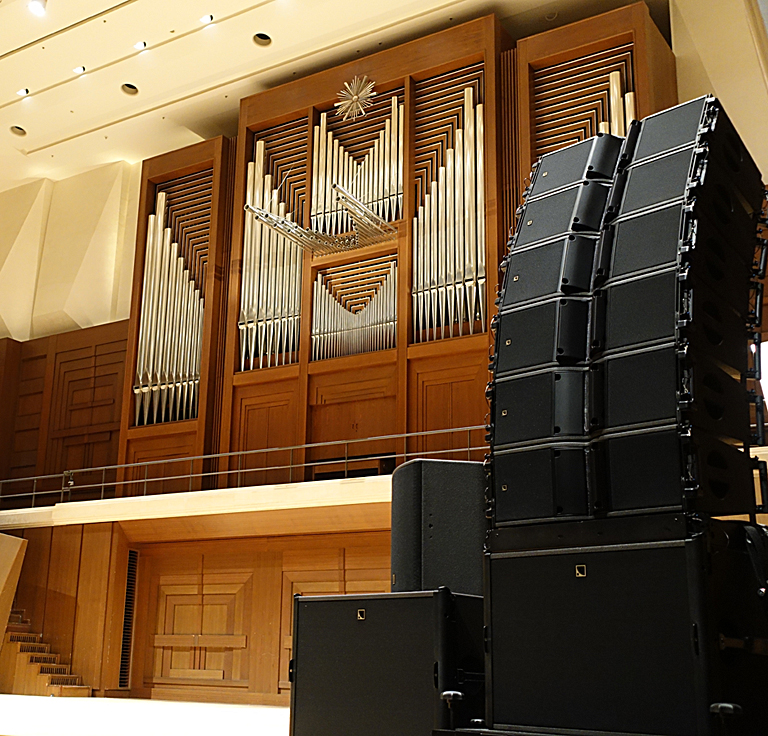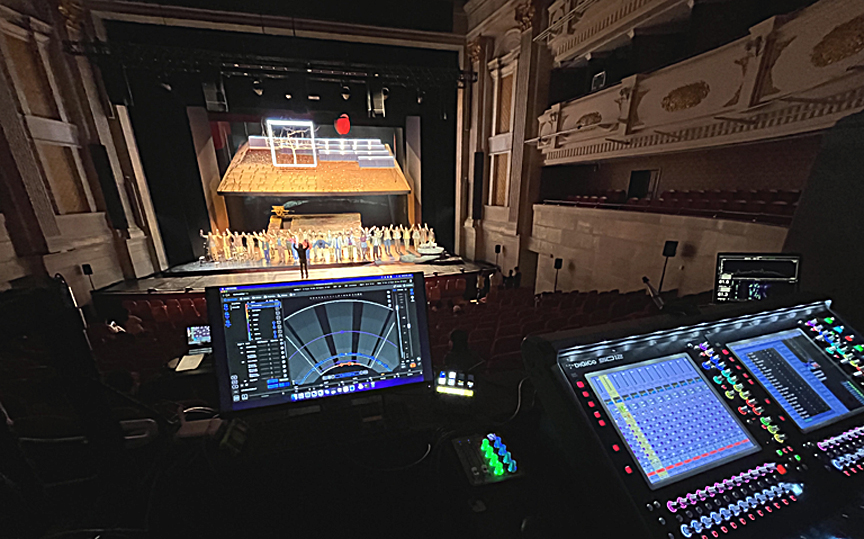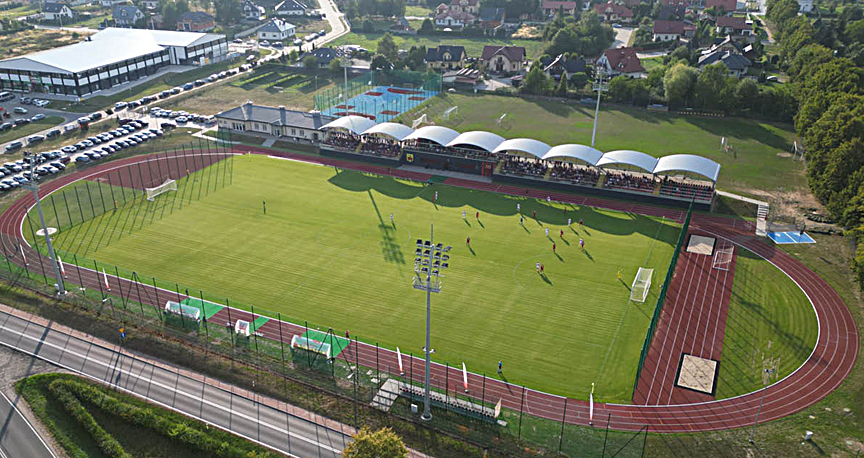
MANCHESTER, UK – For Free Your Mind: The Matrix, an immersive, dance-based reimagining of the cult 90s movie franchise, which was created specifically as the opening event for Manchester’s new cultural space within Factory International, sound designer Gareth Fry specified TiMax SoundHub to play a key role in the complex spatial audio requirements of The Warehouse, where the event’s main action takes place.
More details from TiMax (www.timaxspatial.com):
The production pulled the UK’s most creative talent into its orbit. It’s the brainchild of director Danny Boyle, who, along with Fry, teamed up with choreographer Kenrick “H20” Sandy, composer Michael “Mikey J” Asante of Boy Blue, designer Es Devlin and writer Sabrina Mahfouz.
The production moves from the smaller theatre space in Aviva Studios after the interval and significantly scales up into the vast 21-meter-high Warehouse, with its aircraft hangar proportions. Set up in a traverse and promenade configuration, Fry explains, “In such a big space, with that audience-performer configuration, imaging is critical.”
Whilst the role of TiMax in the performance is to guide the eyes of the audience to the next point in the action, TiMax provides extensive support to deal with what Fry describes as “the complexities of positioning sound in space as well as the complex delaying of multiple speaker systems. Fry explains further that, “…the distances of the stage extremes in comparison with the slow speed of sound really interfere with each other, especially when you have high tempo rhythmic music.”
Playback for the show is handled by QLab which is fed into TiMax, along with the one handheld microphone used in the show. In turn, TiMax outputs to the multichannel distributed Warehouse speaker configuration comprised of a mixture of EM Acoustics loudspeakers and four Holoplot arrays. EM Acoustics EMR12s are rigged within the structure of the 38-metre-wide LED Screen, firing down to provide great quality locational imaging on the stage area.
When the screen is flown up into the ceiling the Holoplot X1 arrays take over, using the speakers’ focused beams of sound to distribute certain musical stems from TiMax around the auditorium for a spatialised effect.
TiMax is a trusted tool for Fry who has relied upon the expert capabilities of TiMax for many of his high-profile projects. He confirms, “I’ve used TiMax a lot on Harry Potter and the Cursed Child and it sounds great. Beyond that, the software is a lot more mature than its competitors, which makes it faster to set up and easier to use to achieve complex results.”
Fry adds, “Fortunately it is very quick to programme and it took less than half an hour to delay the whole system and get it sounding good.” This aspect of TiMax proved invaluable for the inaugural production of a building still undergoing construction. Against this backdrop, Fry also had only praise for the sound team at Aviva, led by Sorcha Steele, and production engineer David Gregory, who said, “I can’t thank them enough for the skill and hard work put in by them and their teams to get the show not only up but sounding good.”
Fry’s final thoughts give testament to the versatility and powerful spatial audio capabilities of TiMax, as he admits, “Though not the reason for including TiMax in the specification, speed and ease of programming proved to be the aspect of using TiMax that I really came to appreciate, as construction delays began killing off a lot of our sound time.”


